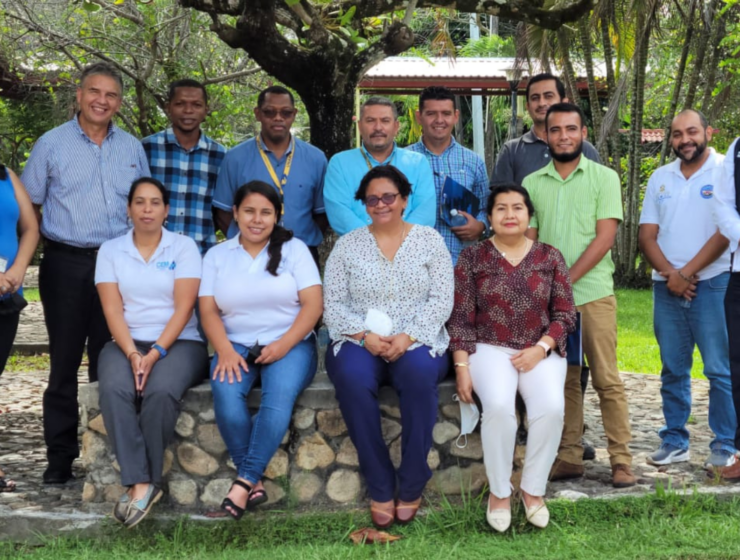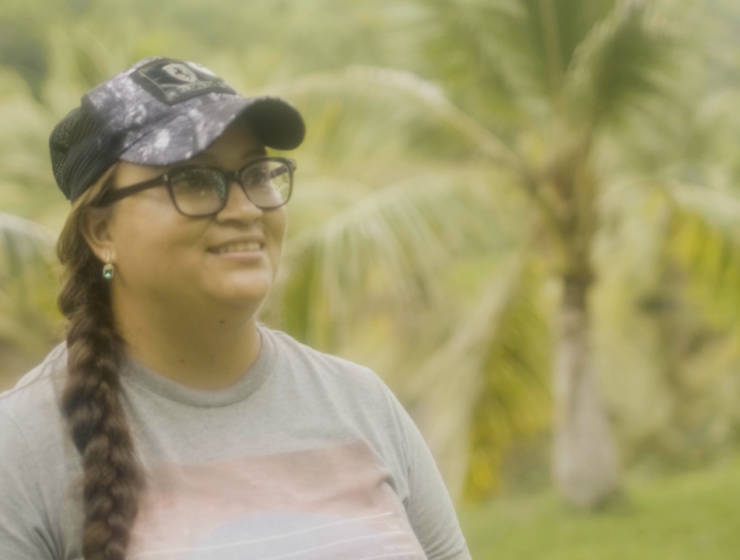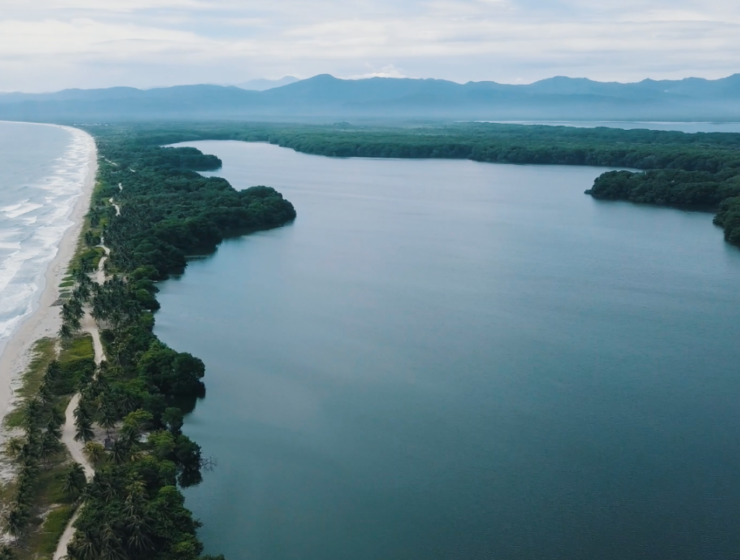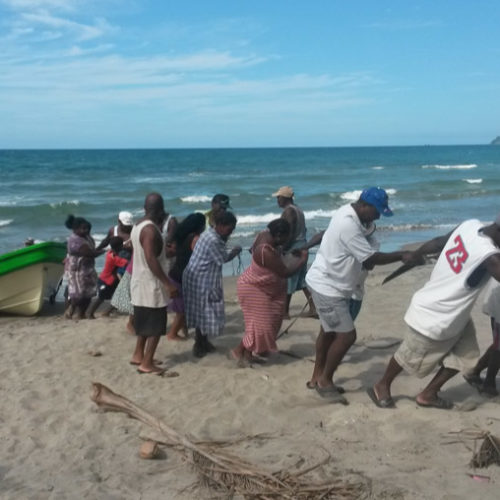
Tela’s Coral Reefs
Tela Bay, on the north coast of Honduras, is home to over 800 clusters of critically endangered corals. It’s known for it’s spectacular coral reefs, with over 68% live coral cover compared to the Caribbean-wide average of approximately 18%. It is also home to large stands of critically endangered elkhorn corals. The area is an important source of coral larvae for other parts of the Mesoamerican Reef—which means keeping them healthy is critical to protecting coral reefs throughout the Caribbean.
But overfishing has put severe pressure on the nearshore coral reefs. Fishing is the primary source of food and income for local residents, and Tela Bay’s coral reefs support 13 different communities. Over 90% of the fish caught in Tela Bay are consumed locally.
Our researchers have found that fish in Tela Bay are biologically connected to fish populations throughout the Honduran Caribbean and possibly the Mesoamerican Reef region. So what happens to fish in Tela affects other parts of the coastline hundreds of miles away. Because of that connection, managing fish populations in Tela is vital to protecting coral reefs and supporting communities throughout the entire Honduran North coast.
Our Work
After years of advocating, building awareness, and forming partnerships, we helped create a marine protected area in Tela. The Honduran national government approved the Tela Bay Marine Wildlife Refuge in 2018, allowing us and our partners to better protect the coral reefs.
Our role is to create structures and increase community capacity to allow local stakeholders to manage their own resources. We collect data that supports a fisheries management plan, and we helped implement fishing regulations and restrictions in Tela Bay based on the plan. To enforce the regulations, we train and support our local partners to implement regular patrols.
But with Tela’s fisheries supporting so many families, we also work with fishers to provide alternative sources of food and income and reduce the pressure on the reef long-term.
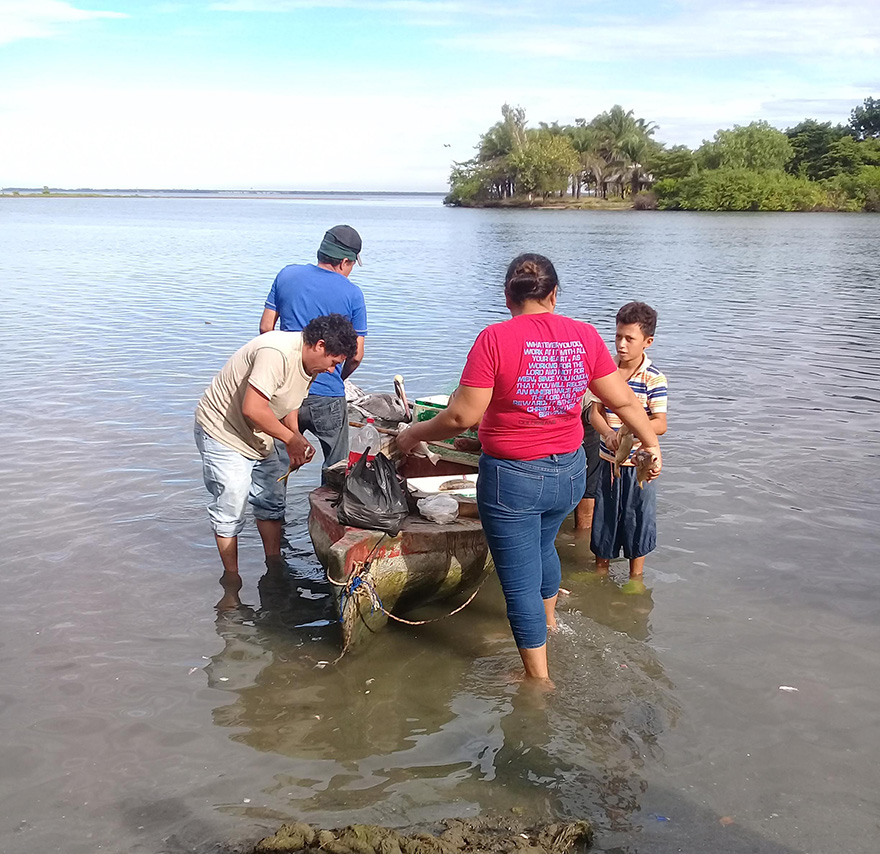
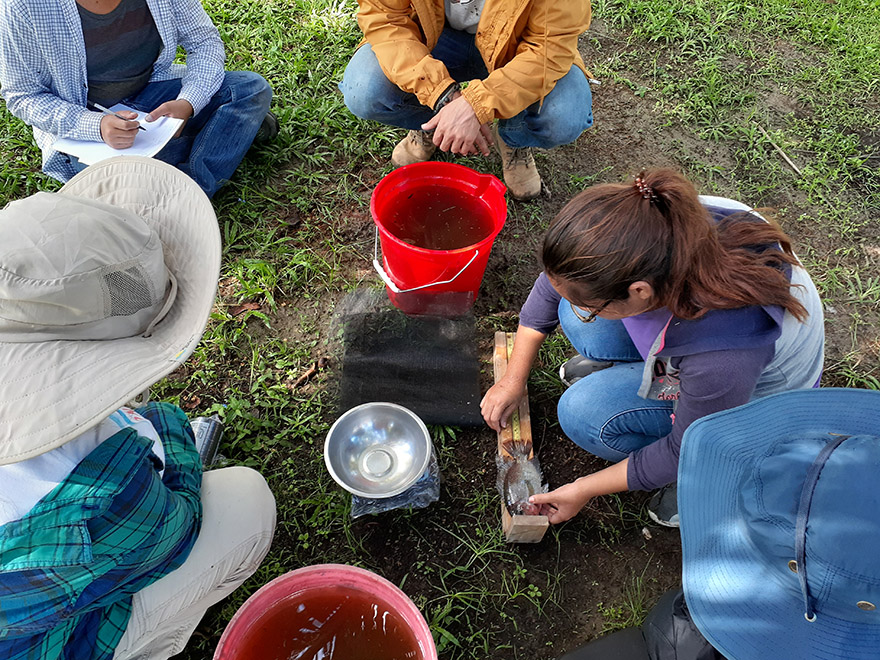
Get Involved
If you’re a local resident in Tela, get involved in efforts to protect your coral reef by following our partners at AMATELA and Fundacion PROLANSATE. You can also send an email to AMATELA or PROLANSATE.
If you’re not a resident of Tela, you can still support Tela’s coral reefs. Help share the resources below to spread the word about Tela’s fisheries and the importance of sustainable tourism in Honduras.
Recent News
New Management Plan Will Protect Coral Reefs in Tela Bay, Honduras
Tela Bay, Honduras has some of the healthiest corals along the Mesoamerican Reef, boasting an abundance of critically endangered species, averaging a high rate of coral cover, and providing an important source of coral larvae for the region. It’s why we work with local communities, scientists, and partners to protect Tela Bay and its natural… Continue Reading →
From Thriving Fish to Spicy Salsa—Here’s How an Aquaponics System Could Support Coastal Communities
Did you know there’s a fish tank that produces tasty vegetables, can create economic opportunities, and helps protect coral reefs? It’s called an aquaponics system, and it combines aquaculture and hydroponics to raise fish and grow organic fruits and vegetables. An aquaponics system relies on a symbiotic relationship between fish and plants. Fish waste fertilizes… Continue Reading →
Tela Bay’s Closed Fishing Season Increases Fish Biomass in Coastal Lagoons
With an almost 500% increase in fish biomass, a successful “closed fishing season” in Tela Bay, Honduras is offering relief to both community fishers and nearby coral reefs. Recently, the proper funding and on-the-ground support has allowed the Tela community to effectively carry-out a two-month closed fishing season in coastal lagoons and enforce sustainable fishing… Continue Reading →
Resources
Catalog of Fish Species in Tela Bay, Honduras
Local fishers held a wealth of knowledge of the various fish species of the region, but that information wasn’t documented anywhere. Now, by partnering with the fishers to create detailed fish catalogs for the region, CORAL has helped preserve this vast local expertise and make it more accessible to the general public.
Monthly Monitoring Protocol: Laguna de los Micos, Tela, Atlántida
The objective of this monthly lagoon monitoring program is to evaluate the state of fisheries in Laguna de los Micos to better understand the impact of lagoon closures. Although this methodology was developed for Laguna de Los Micos, this protocol can be implemented in any lagoon along the Honduran Caribbean coast.
Fisheries Management Plan for Tela Bay, Honduras
The Fisheries Management Plan for Tela Bay seeks to establish a tool for the integrated and sustainable development of fishing activity in Tela Bay. The management plan seeks to achieve three main objectives that integrate three key areas for the management of fisheries resources: ecological, social and economic.
Socioeconomic Diagnosis Of the Fishing Communities in Tela Bay, Honduras
This study evaluates the socioeconomic status of artisanal fishers in Tela Bay, Honduras, to understand the current systems of governance and decision-making and inform the applicability of fishing management tools.
